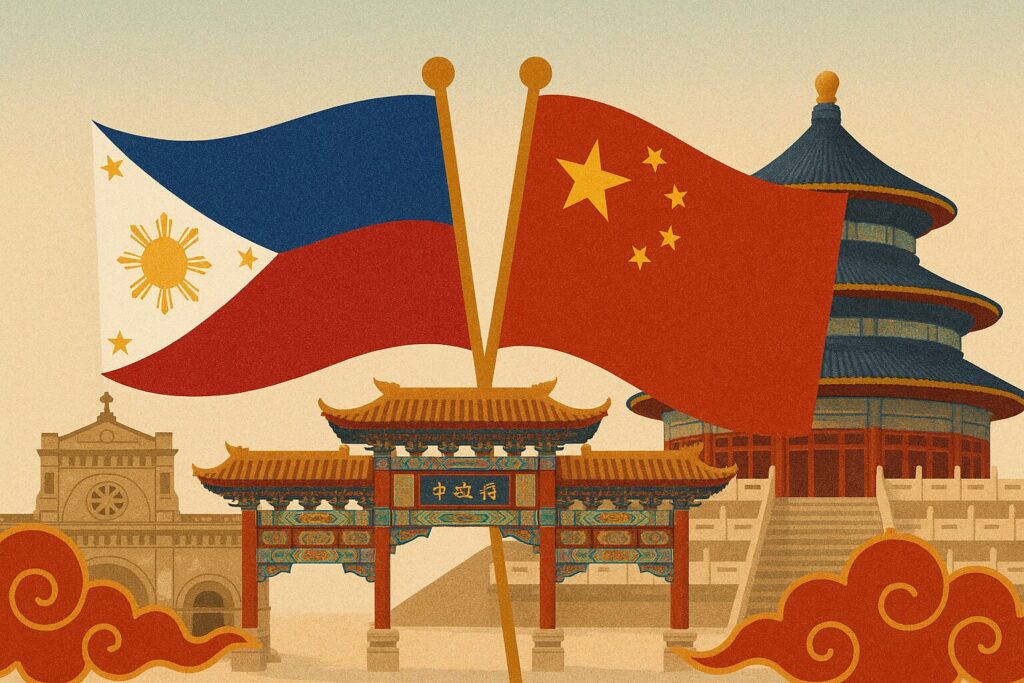June 13, 2025 l Business World

Over the weekend, I had the opportunity to attend two events organized by the Federation of Filipino Chinese Chamber of Commerce and Industry, Inc. (FFCCCII) celebrating 50 years of diplomatic relations between the Philippines and China. These events were especially meaningful to me because of the deep sense of pride that I carry in my Filipino-Chinese heritage and because it brought home to me the sacrifices that my two immigrant grandparents from China endured to build a better life for us here in the Philippines. I learned recently that my paternal grandfather, Felix Qua, migrated here on his own at the tender age of six years old. My grandparents, like many others, crossed the South China Sea seeking new horizons, bringing with them not just dreams of a better future but dedication to their adopted country. The strength and determination of both of my grandparents set the foundation or our family’s journey.
While we celebrate 50 years of formal, diplomatic relations, we have deeper cultural and economic ties that have historically bound our two nations. For centuries, Chinese traders sailed to the Philippine islands, exchanging goods and ideas, embedding cultural practices, and establishing communities that would eventually thrive and integrate. This long-standing interaction fostered a genuine familiarity and a mutual respect that often gets overshadowed by current geopolitical tensions
Today, China stands as an undeniable economic powerhouse and a critical partner for the Philippines as in 2023 China exported $52.4 billion of goods to the Philippines. In April 2025 alone, imports from China amounted to almost 30% of our total imports. At the same time, China is also our third-largest export market after the US and Japan. As a result, China is our largest trading partner, a significant source of foreign direct investment, and a vital market for our agricultural products, minerals, and manufactured goods. According to the Philippine Economic Zone Authority (PEZA), Chinese businesses account for 22% of foreign investments registered with them. For businesses in the Philippines, tapping into China’s immense consumer base and integrating into its supply chains are not just options; they are strategic imperatives for growth and competitiveness.
Culturally, Binondo holds the distinction of being the oldest Chinatown in the world. Established by the Spanish colonial government in 1594, its founding marks a pivotal moment in the history of global Chinese diaspora and the enduring relationship between the Philippines and China which was emphasized during the speech of President Ferdinand R. Marcos, Jr. during the lighting of the Jones Bridge.
The creation of Binondo was a strategic move by the Spanish Governor Luis Pérez Dasmariñas, as it was intended as a permanent settlement for Chinese immigrants. This placement, across the river and visible from Intramuros, allowed the colonial administration to maintain a watchful eye on this burgeoning and economically vital community. However, even before this formal establishment, the area was already a hub of Chinese commerce, reflecting centuries of trade and interaction.
Today, Binondo remains a vibrant, bustling district that seamlessly blends its rich past with the present. Its narrow alleys and thoroughfares are a sensory overload — filled with the aroma of authentic Chinese-Filipino dishes, the glimmer of gold and jewelry shops, the chatter of merchants, and the vibrant colors of traditional Chinese stores.
The Binondo Church stands as a testament to this unique cultural and religious fusion. Binondo is a symbol of cultural assimilation and mutual influence. It showcases how Chinese traditions, customs, and culinary practices have not merely coexisted but have helped shape Filipino identity. From pancit to the hopia, the food culture of Binondo is a microcosm of this centuries-old fusion.
As we celebrate the anniversary of diplomatic relations between the Philippines and China as well as Father’s Day this upcoming weekend, I can’t help but think of my grandfather. I am immensely grateful for his sacrifices. Thank you Kongkong.
***The views expressed herein are his own and do not necessarily reflect the opinion of his office as well as FINEX. For comments, email eaquahiansen@phinma.com.ph. Photo is from Pinterest.

